detail profile andrzej mrowiec
Peran Yang Di Mainkan Andrzej Mrowiec
 An arrogant medical man discovers theres...
An arrogant medical man discovers theres...Case Unknown 2009
An arrogant medical man discovers there's more to his new patient than he imagined in this drama from Polish filmmaker Feliks Falk. Dr. Konstanty Grot is an ambitious young doctor who is determined to make a name for himself, to the point that his wife often accuses him of being more interested in his career than in her. Grot believes that he can earn the respect of his peers by successfully treating a supposedly incurable patient, and he believes he may have found a likely candidate in Pawel Plocki, a mental patient who can barely function. Grot signs Plocki out of the mental hospital where he's been treated for years and moves him into his own home; in time, Plocki shows genuine improvement, and Grot thinks he?s beaten the state medical establishment at their own game. But that?s before Grot learns some secrets about his patient that cast his condition in a new and disturbing light.
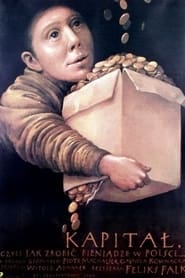 A sociologist nearing middleaged returns to...
A sociologist nearing middleaged returns to...Capital, or How to Make Money in Poland 1990
A sociologist nearing middle-aged returns to Poland after several years of giving lectures abroad. The changing economy of the country and business successes of the people around him inspire him to venture out into the deep and unpredictable world of capitalism himself.
 Made in 1982 shelved for five years...
Made in 1982 shelved for five years...The Mother of the Kings 1987
Made in 1982, shelved for five years. Story opens with Lucja Krol's husband under the tram. She gives birth to her fourth son on the floor of their new apartment. Neighbor Wiktor, a communist intellectual, befriends the poverty-stricken family but is soon arrested and sent to jail. During the war Lucja narrowly escapes a Nazi roundup at the black market. Her sons hold ardent Communist meetings in their apartment, with her blessing. Lucja works hard, but without complaint. After the war, Klemens is inexplicably arrested, accused by the new regime of being a collaborator. Wiktor, now a high-ranking party member, trying to defend him, himself falls into disgrace. Klemens is tortured to "confess" and dies in jail, a Communist to the end. Lucja is never told about his fate.
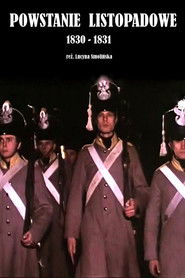 Most important events of November Uprising...
Most important events of November Uprising...Powstanie listopadowe. 1830 - 1831 1980
Most important events of November Uprising in Poland.
 A wellregarded engineer in a big...
A wellregarded engineer in a big...Kung-fu 1980
A well-regarded engineer in a big enterprise is hounded by trumped up attacks on his integrity when he delves too deeply into how bonuses are handled by the management. He gets into an argument with the guard, is arrested and subsequently fired. An old friend, a journalist, tries to sort things out but the victim's stubbornness and past problems with his wife lead to lossess by both.
 Tadeusz Krzakoski the director of a...
Tadeusz Krzakoski the director of a...What Will You Do When You Catch Me? 1978
Tadeusz Krzakoski, the director of a failing state-owned company, is married with problems. His mistress, the daughter of a Communist party bigwig, says she's pregnant and Tadeusz knows he'll have to marry her to save his reputation and his job. But divorce is never simple and Bareja's screwball comedies are never boring.
 A famous Polish journalist presents a...
A famous Polish journalist presents a...Without Anesthesia 1978
A famous Polish journalist presents a problem for the powers-that-be when he displays his full political skill and knowledge on a television show featuring questions and answers on a world conference by a panel of journalists. His enemies take away his privileges when he is away. The shock of being "unwanted" parallels a deeper disappointment in his private life: his wife has an affair with a jealous young rival, and after 15 years of marriage and two daughters wants a divorce. She offers no explanations as he tries to untie these problems himself. All the moves he makes are the wrong ones. He takes on drinking heavily with students eager to attend his seminar after discovering the class has been canceled. The journalist, once suave and commanding, is reduced to silence.
 In what appears to be an...
In what appears to be an...The Spiral 1978
In what appears to be an inexplicable incident, a man drives up to a resort hotel in midwinter, throws away his car keys, enters, and proceeds to agitate everyone he meets with his urgency -- a message he is somehow unable to communicate. Then he leaves, disappearing in the snow. Later, the people he appeared to have upset have gathered to search for him and find him frostbitten, but alive. Visiting him at the sanatorium to which he has been taken, they gradually discover what was really happening.
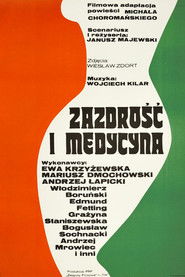 In 1930s a doctor has an...
In 1930s a doctor has an...Jealousy and Medicine 1973
In 1930s, a doctor has an affair with the wife of a wealthy industrialist in Poland.
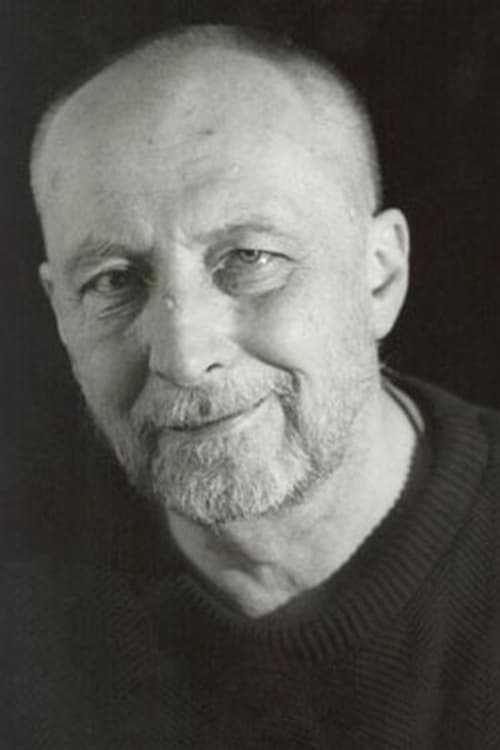
 A story of a mother who...
A story of a mother who...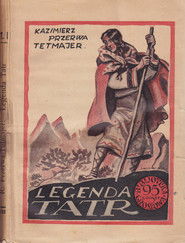 Andrzej who lives in the lowlands...
Andrzej who lives in the lowlands... An actor is married to a...
An actor is married to a...
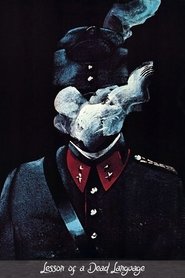 An officer stationed in a remote...
An officer stationed in a remote... A group of juvenile delinquents working...
A group of juvenile delinquents working...